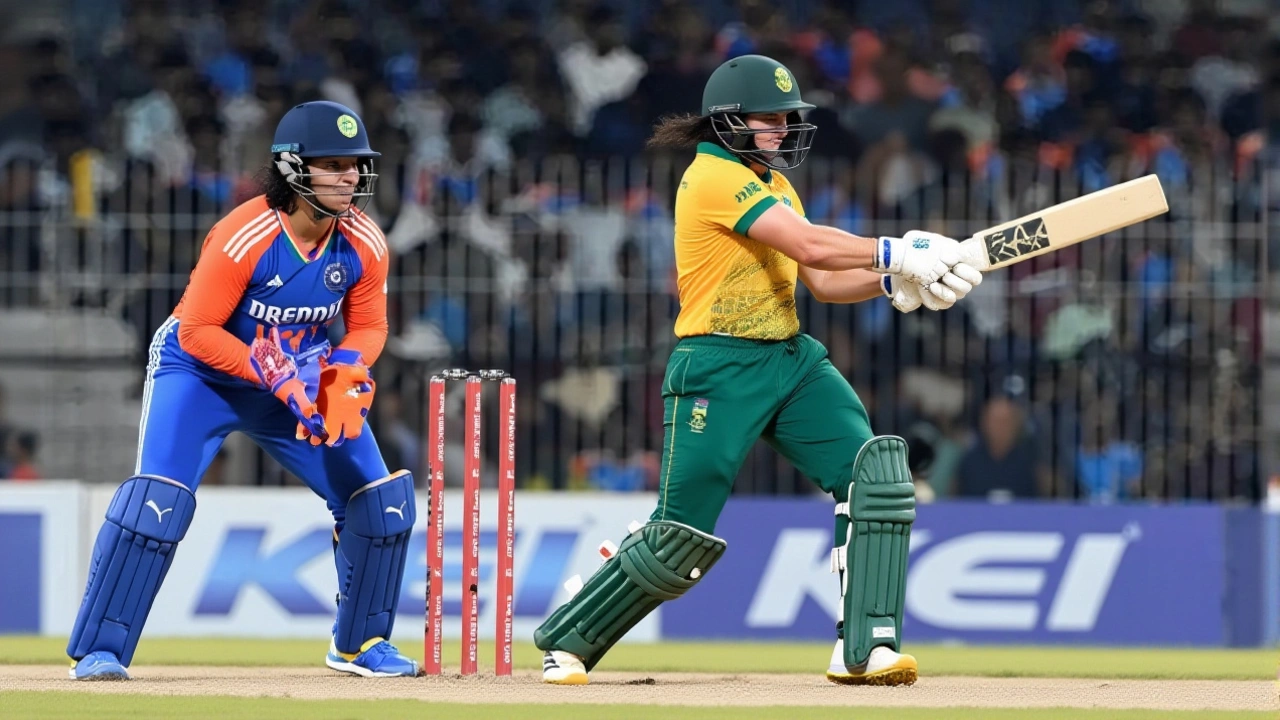
South Africa Women Favored Over Bangladesh at Visakhapatnam World Cup
South Africa Women, led by Wolvaardt and de Klerk, are heavy favorites against Bangladesh in the ICC Women's World Cup match at Visakhapatnam on Oct 13, 2025.
When you talk about South Africa Women, the term captures the diverse experiences of women living in South Africa, from their roles in sports and politics to their contributions in business and culture. Also known as South African women, this group faces unique challenges and celebrates distinct victories that shape the country's social fabric. Understanding this broad entity helps you see how sports victories, policy changes, and grassroots movements intertwine. Below you'll find a mix of stories that reflect that dynamic landscape.
One of the most visible ways women's cricket South Africa, showcases talent, resilience, and growing fan bases across the nation drives national pride. The Proteas Women's team recently smashed a record chase, proving that skill and strategy can rewrite expectations. At the same time, women's soccer South Africa, has surged in popularity thanks to the Banyana Banyana squad’s historic World Cup runs. These two sports illustrate the semantic triple: South Africa Women encompasses competitive athletics, while competitive athletics requires strong grassroots programs, and grassroots programs enable international success. Readers will notice how each victory fuels the next, creating a cycle of inspiration for young girls across townships and suburbs alike.
Beyond cricket and soccer, rugby, netball, and athletics also feature women breaking barriers. When a South African sprinter sets a new African record, she not only adds a medal to the tally but also pushes forward the conversation about funding and media coverage for female athletes. This ripple effect shows how sports achievements influence public policy, which in turn shapes the opportunities available to upcoming talent.
What ties all these stories together? It's the shared belief that women can excel when given the right platform. Whether it’s a stadium in Johannesburg or a training field in Port Elizabeth, the presence of supportive coaches, sponsors, and fans forms the backbone of progress.
Now, let’s step away from the pitch and look at the broader societal forces at play.
Gender equality in South Africa remains a work in progress, but recent legislative moves and corporate pledges are shifting the balance. The Employment Equity Act, for example, mandates a minimum representation of women on company boards, directly impacting the business landscape. This legal framework creates a semantic link: gender equality influences women’s economic participation, and economic participation drives community development. When women take on leadership roles, they often champion issues like education, healthcare, and safety, which feed back into stronger social outcomes.
On the political front, women's political participation South Africa, has grown steadily since the end of apartheid, with more women holding seats in parliament and local councils. The increase in female MP numbers has led to more gender-sensitive legislation, such as stricter domestic violence laws and expanded maternity leave provisions. This creates another semantic triple: women's political participation requires inclusive policies, inclusive policies enable broader societal acceptance, and broader acceptance encourages more women to run for office.
These political gains don’t happen in a vacuum. Grassroots NGOs, university research groups, and youth movements all push the agenda forward. When a community group organizes a workshop on women’s rights, it often partners with local politicians to turn those ideas into bill proposals. The synergy between civil society and government showcases how collaboration magnifies impact.
Beyond formal politics, everyday stories of women entrepreneurs, artists, and activists illustrate the vibrancy of South Africa’s female community. A Cape Town designer launching a sustainable fashion line, a Durban chef starring on a cooking show, or a Pretoria lawyer running a free legal aid clinic—each narrative adds depth to the broader picture of empowerment. These examples highlight that empowerment is not just a buzzword; it’s a lived reality shaped by education, mentorship, and access to resources.
So what can you expect to find in the collection below? A blend of match reports, policy analyses, personal profiles, and event recaps that together paint a full‑screen view of South Africa Women today. Whether you’re a sports fan tracking the latest tournament, a policymaker seeking insight on gender reforms, or just curious about inspiring stories from the region, the posts ahead deliver fresh angles and concrete details.
Ready to dive in? Scroll down to explore the latest headlines, in‑depth features, and uplifting stories that showcase how South Africa Women continue to shape the nation’s future.

South Africa Women, led by Wolvaardt and de Klerk, are heavy favorites against Bangladesh in the ICC Women's World Cup match at Visakhapatnam on Oct 13, 2025.